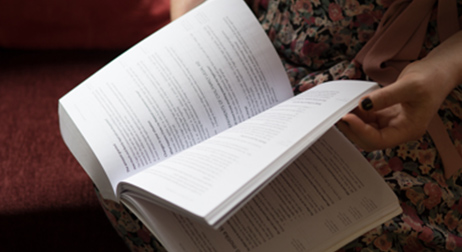

Evidence is given by the prosecution and the defence to establish whether you are guilty of the crime you have been charged with. It is the prosecutor’s role to prove beyond reasonable doubt that you are guilty.
Evidence is given by witnesses to the crime and sometimes by experts who can provide information about aspects of the case (for example, a doctor or psychologist).
Witnesses provide information about what happened or about some other aspect of the case. They give evidence as witnesses either for the prosecution or for the defence.
Usually if you’re asked to give evidence you don’t have a choice. If the prosecution or defence thinks that your evidence is essential, they can ask the court to summon you to be at the trial. A “witness summons” is a document signed by the court registrar ordering a witness to come to court on a set date. This means you have to come to court and give evidence. If you don’t, it’s a criminal offence, punishable by a $1,000 fine if you don’t have a reasonable excuse, and the court can also issue a warrant for you to be arrested and brought to court.
Even when you haven’t already been issued with a witness summons, the court can issue a warrant for your arrest if it decides that your evidence is necessary and you won’t come to court to be a witness unless you’re made to do so.
Note: A spouse of a defendant must give evidence if asked. Spousal immunity from giving evidence was abolished by the Evidence Act 2006.
No. The defendant does not have to give evidence. Usually you will consult with your lawyer before deciding whether or not to give evidence, but it is your choice.
Each side calls witnesses to give their version of events. The prosecution calls its witnesses first, and then the defence puts its case after. There are three stages in giving evidence and there are rules on the types of questions that may be asked:
Did this answer your question?
The criminal courts
Your local Community Law Centre can provide you with free initial legal advice.
Find your local Community Law Centre online: www.communitylaw.org.nz/our-law-centres
Access the free “Lag Law: Your Rights Inside Prison and on Remand” book . This book answers heaps of common questions you might have if you’re going to prison, in prison, or getting out of prison.
Online: communitylaw.org.nz/wp-content/uploads/2020/09/Lag-Law-text-2021-1.pdf
Email for a hard copy: publications@wclc.org.nz
Phone: Community Law Wellington and Hutt Valley – 04 499 2928
Ministry of Justice
The Ministry of Justice provides useful information about court procedure for criminal matters.
Paying your fines
You can learn about, check or pay your fines (infringement and court-imposed) by phone or online. Unpaid fines can stop you leaving New Zealand – use Ministry of Justice’s fine checks form to find out if you have outstanding debt.
Website: www.justice.govt.nz/fines
Phone: 0800 4 FINES (0800 434 637)
Department of Corrections
The Department of Corrections website has helpful information for offenders and their whānau. It provides insight into the procedure before sentencing, while in prison and on parole.
Restorative Practices Aotearoa
Restorative Practices Aotearoa provides information on when restorative justice may be appropriate, and where in New Zealand it is available.
Website: www.restorativejusticeaotearoa.org.nz
Email: admin@rpa.org.nz
Phone: 0800 RJA INC (0800 752 462)
Information for victims
Victims Information
Victims Information provides help to victims of crime, their whānau or friends to deal with the practical and emotional effects of a crime. It also provides information to help victims understand the legal and court process.
Manaaki Tāngata – Victim Support
Victim Support provides a free, nationwide support service for people affected by crime, trauma, and suicide in New Zealand. They help clients to find safety, healing, and justice after crime and other traumatic events.
Website: www.victimsupport.org.nz
Phone: 0800 VICTIM (0800 842 846)
Victim notifications register
Victim notification gives victims of serious crime, who are registered on the victim notification register, a way to stay informed about the person who offended against them.
The Manual contains over 1000 pages of easy-to-read legal info and comprehensive answers to common legal questions. From ACC to family law, health & disability, jobs, benefits & flats, Tāonga Māori, immigration and refugee law and much more, the Manual covers just about every area of community and personal life.
We’re a small team that relies on the generosity of all our supporters. You can make a one-off donation or become a supporter by sponsoring the Manual for a community organisation near you. Every contribution helps us to continue updating and improving our legal information, year after year.
Find the Answer to your Legal Question